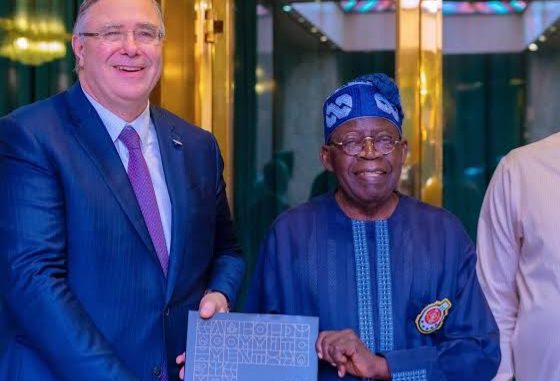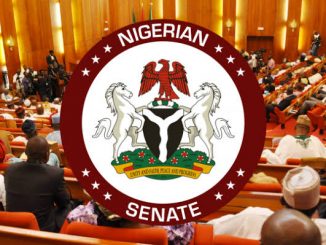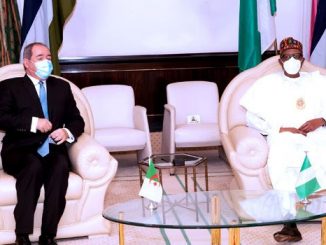
By Marvellous Nyang
In September 2023, veteran journalist and former presidential aide, Laolu Akande, offered a critical piece of advice to President Bola Ahmed Tinubu.
Commending the President’s promising start, Akande stressed the paramount importance of effective coordination in implementing policies, highlighting the necessity for efficient administration, particularly within key ministries, and warned that without this, even the best-laid plans would falter.
The advice
“President Tinubu has started on a good note by implementing sound policies that will undoubtedly benefit Nigeria,” Akande stated. He continued, “If there is not an effective coordination of all the good things that he has spoken of, that would be the end of important things that you want to do.”
Akande, a prominent political analyst, made these comments during a current affairs programme while being interviewed on Channels Television.
A bright start and a major deal
Fast forward to December 2023, President Tinubu’s administration seemed to be making strides as TotalEnergies finalised a substantial $6 billion investment deal in Nigeria.
This agreement, celebrated with optimism, was aimed at boosting Nigeria’s oil and gas sector, with advanced technologies and significant offshore projects in the pipeline. The President’s meeting with TotalEnergies CEO Patrick Pouyanne was a beacon of hope, signalling potential economic revitalisation.
ALSO READ: Akande commends Tinubu, urges policy coordination to attain set goals
TotalEnergies reaffirmed its commitment to Nigeria, with Pouyanne stating, “We pledged to invest $6 billion in the coming years,” focusing on offshore oil projects and gas production. Tinubu’s office highlighted the President’s promise to “remove anti-investment impediments in the oil and gas industry” and provide incentives to producers to help boost gas output.
A deal gone sour
However, just five months later, this optimism turned into a disheartening reality. In May 2024, TotalEnergies announced the termination of its $6 billion investment in Nigeria, citing “inconsistency in policymaking” as the primary reason. Pouyanne, speaking at the Africa CEO panel, elaborated on the challenges faced:
“Nigeria loves to open topics without closing them. You love to debate. There is always a new legislature in Nigeria about a new petroleum law. When you have such permanent debates, it’s difficult for investors looking for long-term structure to know what direction to go,” Pouyanne said.
He added, “In reality, the Niger Delta is the most prolific part of West Africa. But if you look at what happened, because of these debates, there has not been a single exploration in Nigeria for 12 years. It’s important to have a debate and then settle it and put a framework on the table that investors can trust.”
The crucial misstep
Laolu Akande’s warnings were not just general advice but pointed insights that could have steered the administration towards success. He emphasised that without effective coordination and a stable policy environment, Nigeria’s ambitious plans would be doomed.
“Two things are important for that,” Akande said. “The offices of the Chief of Staff and Secretary to the Government of the Federation.” His call for the implementation of Key Performance Indicators (KPIs) and streamlined oversight of critical ministries was not heeded.
As a result, the administration’s failure to ensure policy consistency and effective governance led directly to the loss of TotalEnergies’ investment.
The broader impact
This incident underscores a significant missed opportunity for Nigeria, not only in terms of financial investment but also in public confidence. The cancellation of the deal has broader implications for Nigeria’s attractiveness as an investment destination.
It signals to other potential investors that the country’s policy environment may be too volatile for sustainable business operations, thus potentially deterring much-needed foreign investment.
Pouyanne highlighted additional concerns: “Security comes first. For a CEO like me, the security of my people is of utmost importance. We also have finding talent has a difficulty. In some countries like Nigeria and Rwanda, we find it difficult to find talent. Some of them have difficulty in education.”
A lesson for the future
The termination of TotalEnergies’ investment serves as a stark reminder of the importance of effective governance and policy consistency. President Tinubu’s administration must take this lesson to heart and prioritise the coordination and stability of its policies.
Laolu Akande emphasised, “Putting together a capable and efficient cabinet is not an easy task. We must admit that indeed it is very difficult putting together a cabinet, especially for a consummate politician with the pedigree of the President, but I think this is one of the areas I expected a lot more in being decisive that this is what I’m going to go ahead with, I don’t have all the time in the world, I only have four years, there are serious problems that are very urgent and I need to go at a faster pace.”
This underscores the urgency and limited timeframe within which the administration must act. His prophetic advice, if followed, could have preserved not only the TotalEnergies deal but also bolstered Nigeria’s standing as a reliable investment destination.
Moving forward, it is imperative for the administration to heed such insights to prevent further economic setbacks and to restore public and investor confidence.




